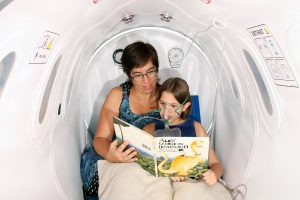
Having diversity within a family is a great asset as the child that comes in this family gets to learn various languages and culture. It is for this reason that you must know how to raise a bilingual child. Having a diverse linguistically can be very advantageous for the child, as being bilingual is a real gift.
Here are some tips that will help you raise a bilingual child better and you will know what you must do and what you must not.
These are some core principles in this area that will help you know this area better and plan accordingly. Generally, either of the languages the child is more exposed to is the more dominant one for the child. However, the more dominant language can always shift at any given moment, but the one that is used more frequently becomes the dominant language.
Also, children will see a simultaneous acquisition in both the languages that he or she learns and this can be seen right from birth or a very early age. The child can be seen to experience a successive acquisition where the primary language of the child is very clearly established on the child’s development.
After that the child is slowly introduced to a new language when the child is quite young.
There can be a silent period while learning the new language where the child prefers to silently observe and then slowly speak the language.
It is also important to use both the languages at home in fact try to use all the languages at home if needed and you will notice that the child will pick up the language slowly and steadily.
Give the child ample space and time to speak and learn all the languages in general, on their own also in the social contexts.
Try and consistently use one language at home so the child picks up fast.
Studies show that children who are as young as even six months actively observe the sounds of speech in their surroundings and learn from them. So, allow maximum exposure to these sounds.
If a native language is spoken at home, then it is important to let the child learn that and speak only that at home as the other language, the formal medium of instruction will anyway be taught at home and can be picked up by the child.
A natural language environment is very important for the child to thrive and learn both the languages with ease.
As parents, try to be dedicated to bilingualism throughout the course of the child’s education and also encourage the child to read and write in all these languages and carry it over into adulthood so there is ample scope for the child to learn.
It is essential to speak the language continuously as there are chances that the skill will deteriorate.
If you feel that a bilingual child has a problem in speech or delay in speech development, then it is essential to visit the doctor and address the problem.
The bottom line is that bilingualism is very important to enrich many or even all aspects of childhood. So, whenever it is feasible, it is recommended that you try commit to it as that will develop the language skills of the child. It will go on to ensure that the child is learning and also developing. It will help the child be more open and will have access to many more opportunities. So, try and make your child two or more languages so there is ample development and the child is fluently able to communicate in two languages. If you want to know more about speech therapy or occupational therapy for children, get in touch with the experts today.